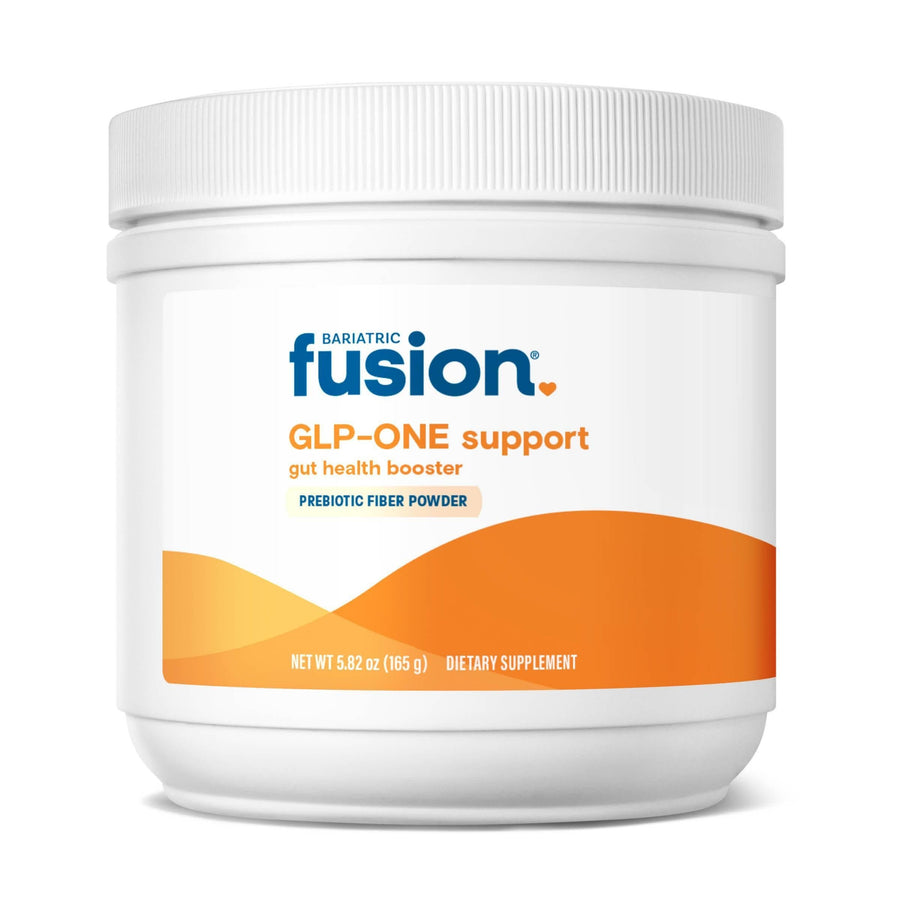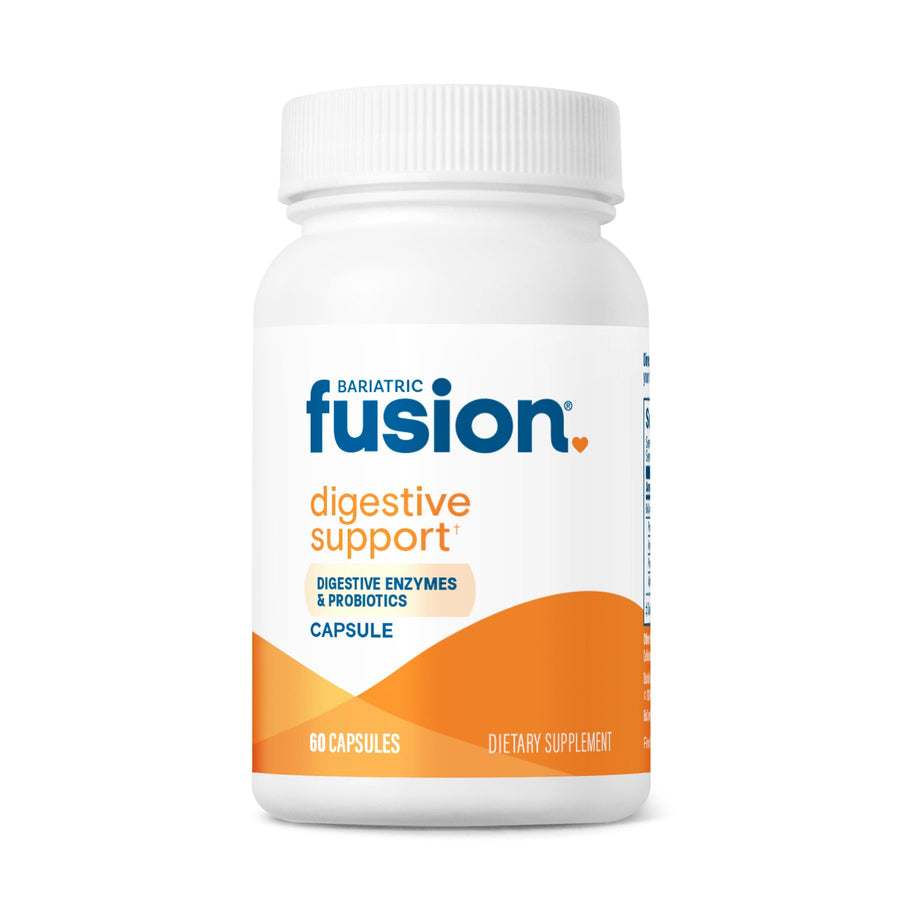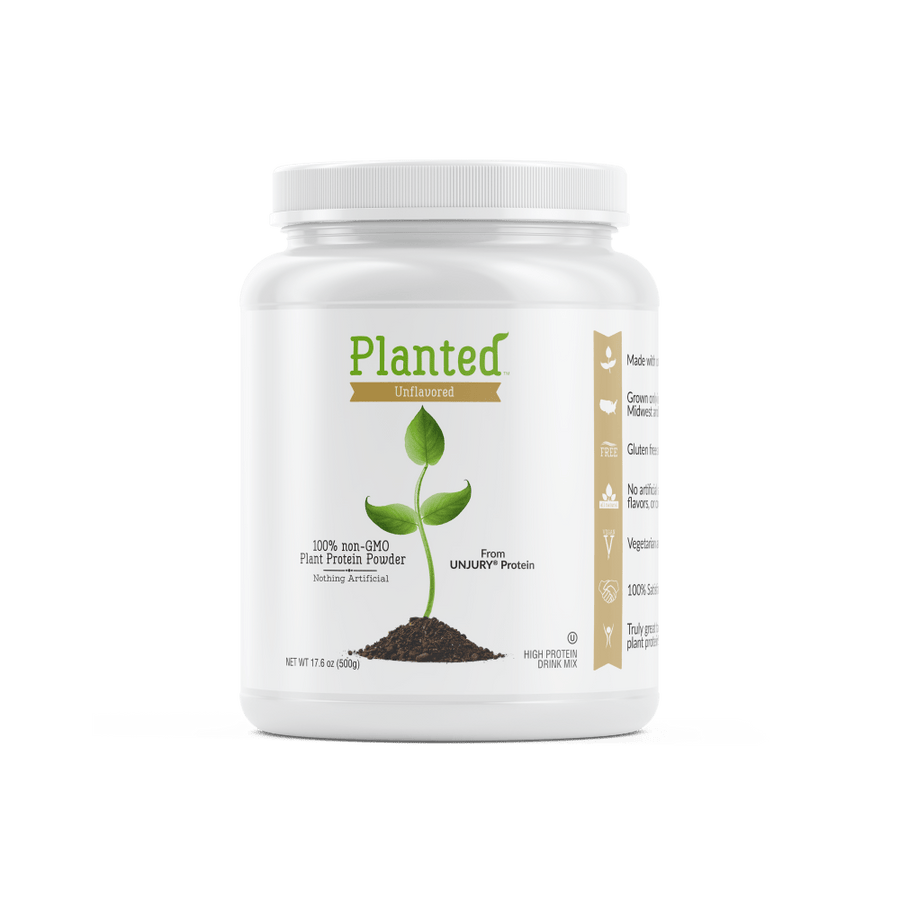How Does Whey Protein Affect Acid Reflux?
Your protein shake may help soothe your stomach. Here’s what you need to know.
Whey protein isn’t just good for muscles; it can support better digestion, reduce reflux triggers, and help you feel full longer.*
Let’s take a look at how you can use your protein shakes wisely to support comfortable digestion.*
Whey Protein: A Surprising Ally for Digestive Comfort*
If you’ve ever felt that uncomfortable burning in your chest after a meal, you’re not alone. Acid reflux is common, especially after bariatric surgery or during weight loss. But here’s the good news: What you eat and how you eat can make a big difference. One nutrient that may help manage reflux is whey protein.*
Let’s explore why.
The Science: Why Whey Protein May Help With Reflux*
Reflux happens when stomach acid escapes into the esophagus. While many people think of food as a trigger, certain nutrients can actually support better digestion and reduce reflux symptoms. Whey protein is one of them.*
Here’s how:
- Slows gastric emptying: Whey protein helps food move more gradually through your digestive system. This steady process helps reduce pressure on the stomach, which may lower the risk of reflux episodes.1*
Did you know? Slow, steady digestion helps minimize large swings in stomach pressure, which is the main culprit behind acid reflux.2
- Stimulates gastrin but also regulates it: While protein intake does stimulate stomach acid (via gastrin), consuming protein in a balanced meal, especially alongside fiber, helps regulate acid release and reduce irritation.3,4
- Less fat and fewer carbs = fewer triggers: High-fat and high-sugar meals tend to increase acid production and delay stomach emptying. Replacing some of those calories with protein can ease symptoms.5
Whole Food Protein Isn’t Always Easy—Especially After Surgery
After bariatric surgery, digestion changes dramatically. Smaller stomach size, reduced acid production, and altered motility can make it difficult to tolerate large amounts of whole food protein like chicken, steak, or eggs, especially in the early months post-op, but even years later.6
That’s why whey protein isolate and other high-quality supplements like Unjury® Plant-Based Pea Protein can be incredibly helpful:
- They're easier to digest, especially in isolate or hydrolyzed form.7
- They allow you to meet protein goals without overwhelming your stomach.
- They offer a gentler option during flare-ups of reflux or food intolerance.
Key takeaway: For many bariatric patients, the most comfortable and sustainable approach is combining whole food proteins with high-quality protein shakes.
Tips for Using Whey Protein to Support Comfortable Digestion*
Not all shakes are created equal. Here’s how to make sure your whey protein routine is reflux-friendly:
✅ Choose clean formulas
Look for whey protein isolate or hydrolyzed whey—both are easy to digest and lower in lactose. Avoid added acids, caffeine, or artificial sweeteners, which may irritate the stomach lining.8
✅ Go low and slow
Start with smaller portions (e.g., half a scoop) and sip your shake slowly. Eating or drinking too quickly can trigger reflux by overfilling the stomach.
✅ Add a fiber blend
Pair your protein with a soluble and insoluble fiber blend to support gut motility and microbiome balance. Soluble fiber forms a soothing gel in the gut, while insoluble fiber helps everything move along.9*
Did you know? Adding fiber to your protein shake not only helps with satiety but also supports regularity, gut barrier health, and microbiome diversity.10*
Other Gut-Supportive Supplements to Consider*
Whey protein can be part of a reflux-friendly lifestyle—but it’s even more effective when combined with other digestive helpers:
- Prebiotic fiber: Fuels good bacteria that improve gut barrier function and reduce inflammation. Look for Sunfiber® or resistant starches like Solnul®.11,12*
- Digestive enzymes: Help break down protein, carbs, and fat more efficiently, reducing fermentation and gas that contribute to reflux.13*
- Probiotics: Support a healthy gut microbiome and play a role in regulating motility and inflammation.14*
- Prebiotics & gut lining support: Ingredients like glutamine, zinc carnosine, or butyrate promoters can help strengthen the gut barrier and calm irritation.15,16*
Summing It Up
Whey protein isn’t just for muscle—it’s a valuable tool in your digestive health journey. If reflux has been holding you back, try simplifying your meals, slowing down your intake, and using protein shakes that are gentle on your system.*
For bariatric patients, especially, a combo of whole foods and protein supplements may be the key to feeling full, meeting goals, and avoiding digestive discomfort, so they can enjoy life.*
Read more:
Managing Acid Reflux: The Role of Protein
References
1. Krupa-Kozak U et al. Nutrients. 2020;12(8):2404.
2. Boeckxstaens GE. Neurogastroenterol Motil. 2005;17 Suppl 1:13–21.
3. Fukumoto S et al. Am J Physiol. 1991;260:G103–G106.
4. Lanza FL et al. Am J Gastroenterol. 2009;104(3):728–738.
5. Kaltenbach T et al. J Clin Gastroenterol. 2006;40(8):673–677.
6. Mechanick JI et al. Obesity. 2013;21(S1):S1–S27.
7. Luhovyy BL et al. J Am Coll Nutr. 2007;26(6):704S–712S.
8. Martinsen TC et al. Scand J Gastroenterol. 2005;40(10):887–893.
9. Slavin JL. Nutrition. 2005;21(3):411–418.
10. Makki K et al. Cell Host Microbe. 2018;23(6):705–715.
11. Maurer J et al. Am J Clin Nutr. 2022;115(3):690–701.
12. Canadian Digestive Health Foundation. Solnul® resistant potato starch promotes beneficial bacteria including Akkermansia muciniphila. 2022.
13. Martinsen TC et al. World J Gastroenterol. 2015;21(20):5914–5920.
14. Ouwehand AC et al. Curr Opin Biotechnol. 2002;13(5):483–487.
15. Lambert GP. J Anim Sci. 2009;87(14_suppl):E101–E108.
16. Kelly CJ et al. Curr Opin Gastroenterol. 2015;31(2):117–123.














